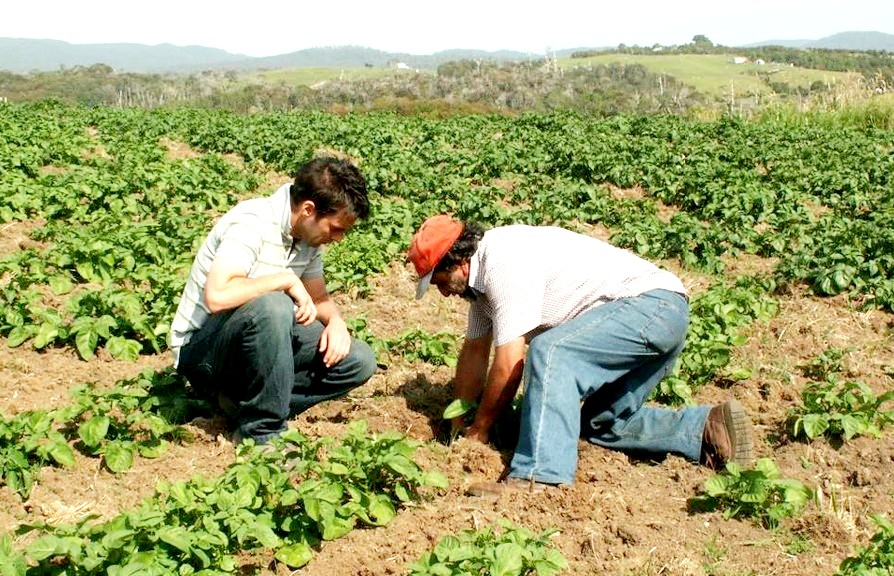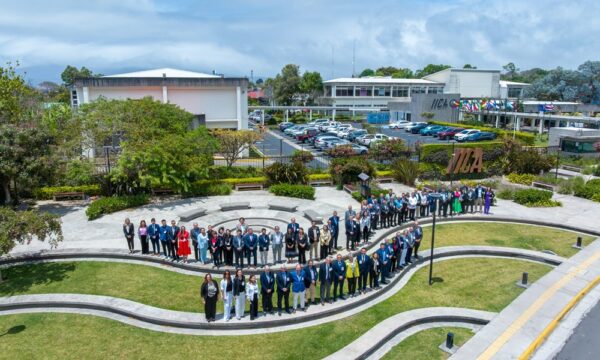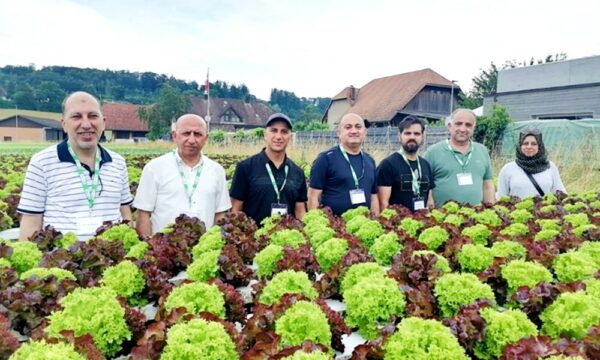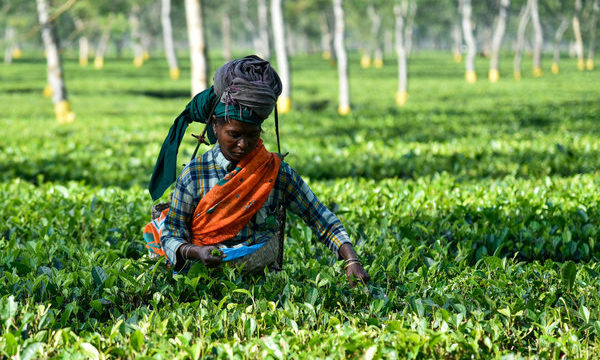
CABI is working with the Agricultural Research Institute (INIA) in Chile and the Croda Foundation to help increase sustainable potato production of the crop including supporting 300 smallholder farmers reduce their reliance on chemical pesticides.
The three-year project will enable Chile’s smallholder potato farmers develop more sustainable livelihoods through nature-based biological pesticides – incorporating existing biopesticides as well as investigating new biological solutions.
As part of the project activities a technical visit took place in Chiloé Island involving partners where an update was given on efforts to reach 160 farmers in the first year of the project. This included efforts to train farmers and technicians on the use of nature-based solutions, the application of bioproducts and good agricultural practices.
In attendance was Dr Yelitza Colmenarez, CABI’s Centre Director, Brazil, Executive Director of Croda Foundation, Rommel Moseley, INIA’s Specialists Jean Franco Castro (Coordinator of the project in Chile); Maria Teresa Pino (International Affairs Division-INIA), INIA Remehue Director, Manuel Muñoz David, Sub-Director, Carlos Salas and Senior Researcher, Ivette Acuña.
Improve their livelihoods while also helping to protect fragile ecosystems
By sharing science-based knowledge about crop health, CABI will support smallholder farmers to grow more and lose less, increase their incomes and ultimately improve their livelihoods while also helping to protect fragile ecosystems.
Consumed by more than one billion people worldwide, potatoes contribute to food security and employment for people in rural and urban areas around the world.
Originally from the Andean highlands of South America, the potato was known as the “flower of the ancient Inca civilization”, for whom it was a staple crop. It was later introduced in Europe in the 16th century, where it spread to the rest of the world.
In Chile, its production is concentrated in the central-south zone, with more than 35 thousand hectares under cultivation. The country boasts some 250 species whose cultivation is led by the Los Lagos region, particularly on the Isla Grande de Chiloé, an area where it has become a heritage species.
Traditional farming systems are under threat

Dr Colmenarez said, “As the world grapples with population growth, climate change, and resource scarcity, the potato offers a resilient, nutritious, and efficient solution. Nutritionally, potatoes provide essential carbohydrates for energy, are rich in vitamin C, potassium, and B vitamins, and contain dietary fibre and antioxidants.
“The Andean region is a cradle of agricultural biodiversity, especially for tubers like potatoes and oca. However, traditional farming systems are under threat. Irregular rainfall, prolonged droughts, and extreme weather events are reducing crop yields and increasing the risk of pests and diseases.
“Smallholder farmers, who rely on ancestral knowledge and marginal lands, are particularly vulnerable. Many lack access to modern irrigation, crop insurance, or climate-resilient seeds. As a result, their livelihoods and food security are increasingly precarious.
“In addition to this, smallholder farmers required assistance to get familiarize with the use of natural-base solutions to sustainable manage the pest and diseases attacking their crops.”
Improve Chile’s phytosanitary problems in the potato value chain
Dr Colmenarez added that to review the lines of collaboration at the institutional level, a meeting was also held with INIA General Director, Carlos Furche; the Research Director, Christian Alfaro and the National Deputy Director of Community Engagement and Technology Transfer, Germán Holmberg Fuenzalida.
The partners contend that, in terms of food security, potatoes yield more food per hectare than most other staple crops. They require less water than rice or wheat and can be cultivated in marginal soils, making them a lifeline for smallholder farmers and communities vulnerable to food shortages. Their adaptability and productivity make them a strategic crop in the fight against hunger and malnutrition.
Their efforts will help improve Chile’s phytosanitary problems in the potato value chain – thereby helping smallholder farmers increase their livelihoods as well as regional and national food security.
Additional information
Main image: Irregular rainfall, prolonged droughts, and extreme weather events are reducing crop yields and increasing the risk of pests and diseases, but CABI is working in partnership to help smallholder farmers mitigate these challenges.
About Croda Foundation
The Croda Foundation is an independent charitable organization funded by Croda International. Established in 2020, their mission is to sustainably improve the lives of people in communities around the world. The Foundation focuses on improving health and wellbeing, reducing poverty and hunger, and protecting and restoring forests and ecosystems. It aims to achieve these goals by providing access to people, know-how, and capital.
Related News & Blogs
Advancing sustainable agriculture: CABI BioProtection Portal highlighted at rural pharmacies event in Brazil
The CABI BioProtection Portal – the largest open-access global resource for registered biocontrol and biopesticide products and information – has been highlighted at a rural pharmacies event in Brasília, Brazil. The term ‘Rural pharmacy’ refe…
9 September 2025





